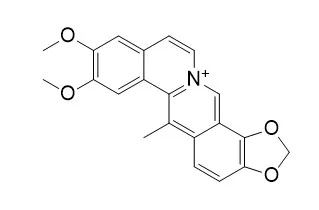
ChemFaces products have been cited in many studies from excellent and top scientific journals
Contact Us
Order & Inquiry & Tech Support
Tel: (0086)-27-84237683
Tech: service@chemfaces.com
Order: manager@chemfaces.com
Address: 176, CheCheng Eest Rd., WETDZ, Wuhan, Hubei 430056, PRC
How to Order
Orders via your E-mail:
1. Product number / Name / CAS No.
2. Delivery address
3. Ordering/billing address
4. Contact information
Order: manager@chemfaces.com
Delivery time
Delivery & Payment method
1. Usually delivery time: Next day delivery by 9:00 a.m. Order now
2. We accept: Wire transfer & Credit card & Paypal
Citing Use of our Products
* Packaging according to customer requirements(5mg, 10mg, 20mg and more). We shipped via FedEx, DHL, UPS, EMS and others courier.
According to end customer requirements, ChemFaces provide solvent format. This solvent format of product intended use: Signaling Inhibitors, Biological activities or Pharmacological activities.
| Size /Price /Stock |
10 mM * 1 mL in DMSO / Inquiry |
Other Packaging |
*Packaging according to customer requirements(100uL/well, 200uL/well and more), and Container use Storage Tube With Screw Cap |
More articles cited ChemFaces products.
- Phytomedicine.2015, 22(14):1262-8
- Molecules2021, 26(1),230
- BioResources J.2020, 15(3).
- Nat Plants.2016, 3:16205
- J Ethnopharmacol.2017, 209:305-316
- Int J Mol Sci.2021, 22(14):7324.
- University of Central Lancashire...2017...
- Nutrients.2021, 13(3):978.
- Front Plant Sci.2017, 8:723
- Evid Based Complement Alternat Me...2017...
- Front Immunol. 2020, 11:62.
- Food Chem.2019, 279:80-87
- Anticancer Res.2018, 38(4):2127-2135
- Food Res Int.2020, 133:109130.
- Eur Rev Med Pharmacol Sci....2020...
- Pharm Biol.2021, 59(1):134-145.
- Anal Chim Acta.2018, 1039:162-171
- Drug Chem Toxicol.2020, 1-12.
- Nat Prod Sci.2014, 20(3):182-190
- Br J Pharmacol.2020, 10.1111
- Front Aging Neurosci.2018, 10:269
- Nutrients.2018, 10(12):E1998
- J Agric Food Chem.2015, 63(44):9869-78
- More...
Our products had been exported to the following research institutions and universities, And still growing.
- Instytut Nawozów Sztucznych w ... (Poland)
- Monash University Sunway Campus (Malaysia)
- National Cancer Institute (USA)
- Universite de Lille1 (France)
- Indian Institute of Science (India)
- Pennsylvania State University (USA)
- University of Toulouse (France)
- Universidade do Porto (Portugal)
- Universidade Federal de Santa C... (Brazil)
- Hamdard University (India)
- University of Zurich (Switzerland)
- More...






 Cell. 2018 Jan 11;172(1-2):249-261.e12. doi: 10.1016/j.cell.2017.12.019.IF=36.216(2019)
Cell. 2018 Jan 11;172(1-2):249-261.e12. doi: 10.1016/j.cell.2017.12.019.IF=36.216(2019) Cell Metab. 2020 Mar 3;31(3):534-548.e5. doi: 10.1016/j.cmet.2020.01.002.IF=22.415(2019)
Cell Metab. 2020 Mar 3;31(3):534-548.e5. doi: 10.1016/j.cmet.2020.01.002.IF=22.415(2019) Mol Cell. 2017 Nov 16;68(4):673-685.e6. doi: 10.1016/j.molcel.2017.10.022.IF=14.548(2019)
Mol Cell. 2017 Nov 16;68(4):673-685.e6. doi: 10.1016/j.molcel.2017.10.022.IF=14.548(2019)